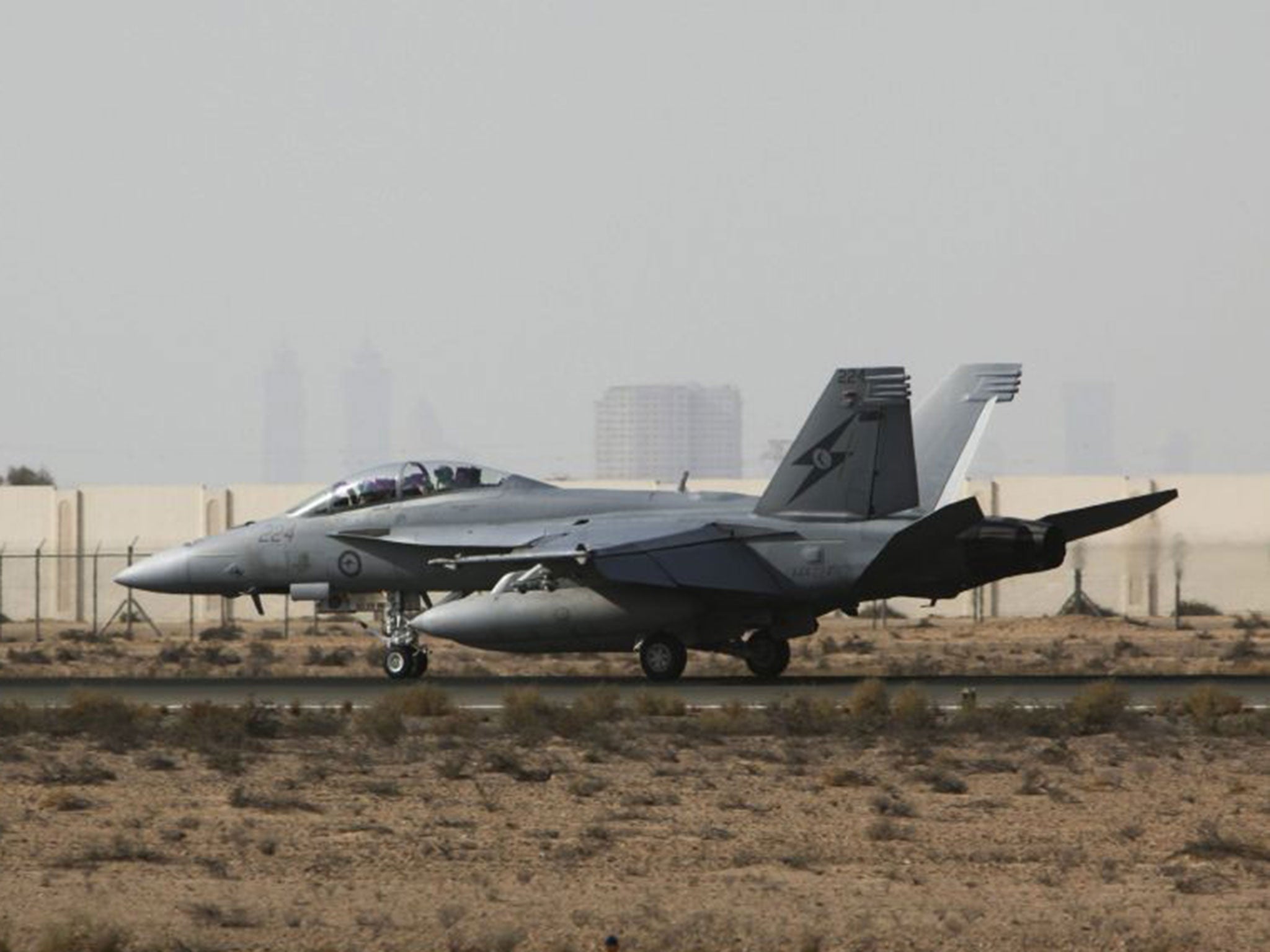Isis air strikes: Australia sends fighter jets to join coalition bombing targets in Iraq
Six F/A-18F Super Hornet jets will carry out missions starting within days

Australian fighter jets will bomb Isis targets in northern Iraq within days after the Government approved air strikes as part of the US-led military coalition.
Six F/A-18F Super Hornet jets add to the country’s contribution of air force planes for surveillance, communication and refuelling.
Tony Abbott’s announcement of military involvement on Friday had been widely anticipated since the Super Hornets were deployed to a base in the United Arab Emirates two weeks ago.
It followed Barack Obama’s request for support in the fight against the extremist militants who are waging a bloody war in Iraq and Syria to establish a hardline Islamic caliphate.
Mr Abbott, the Australian Prime Minister, warned that action in Iraq could be “quite lengthy” and certainly in “months rather than weeks”.
“Yes, it is a combat deployment, but it is an essentially humanitarian mission to protect the people of Iraq and ultimately the people of Australia from the murderous rage of the Isil [Isis] death cult,” he added.
“Isil must be disrupted and degraded at home and abroad, so it is absolutely in Australia's national interests that this mission goes ahead.”
Despite his rhetoric, echoing President Obama’s vow to “degrade and destroy” the terrorists, he admitted total victory over Isis would be difficult to achieve.
“If we could degrade them to the point where they no longer existed, that would be obviously the best possible result,” he said. “It is very difficult to eliminate an idea.”
A poll of almost 7,000 people by the Sydney Morning Herald found a narrow margin of support for the intervention among Australians.
About 49 per cent of voters backed air strikes, while 42 per cent were against it and the remainder were unsure.
The news came hours after David Cameron announced that two more British Tornadoes will be deployed in Cyprus to join missions against Isis in Iraq, bringing the total to eight.
The Prime Minister said the additional fighter jets would “keep up the tempo” of air strikes and save lives in Iraq.
Australia’s Air Chief Marshal, Mark Binskin, said the air strikes would start “over the coming days” but did not give specifics.
The intervention was approved by Australia’s National Security Committee following an official request from the Iraqi Government overnight.
Two Australian Air Force planes - an E-7A Wedgetail surveillance and communications jet and a KC-30A refuelling plane - joined operations over Iraq from the al-Minhad Air Base outside Dubai for the first time on Wednesday to support strikes by other nations.
Britain at War: Opinions on the ground
Show all 8The number of Super Hornets could soon be increased to eight, joining a 200-strong ground force, including special forces, and 400 Air Force personnel from Australia.
Mr Abbott has restricted combat operations and has ruled out Australian troops fighting on the ground.
Australia is one of dozens of countries from Europe, the Middle East and North America that joined the US-led military coalition fighting Isis.
Subscribe to Independent Premium to bookmark this article
Want to bookmark your favourite articles and stories to read or reference later? Start your Independent Premium subscription today.

Join our commenting forum
Join thought-provoking conversations, follow other Independent readers and see their replies